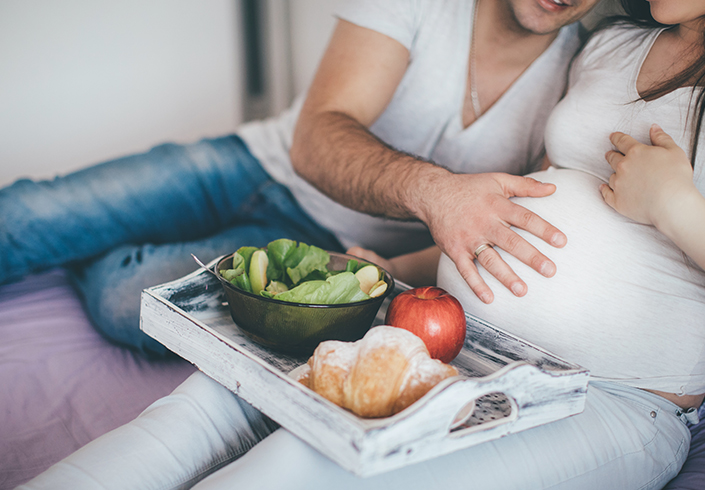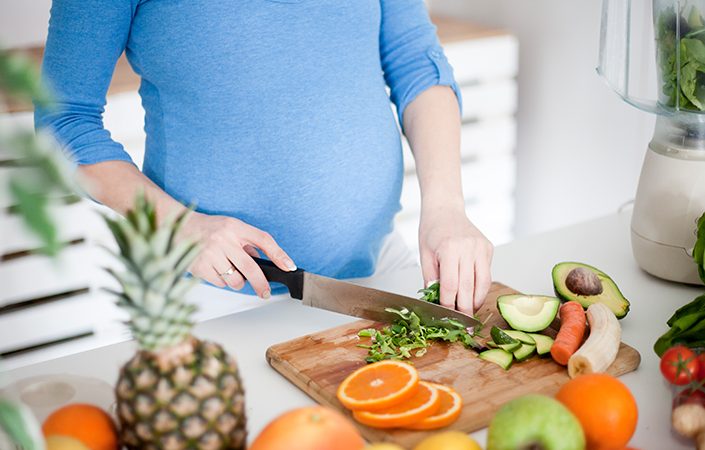
Why is it important to pay attention to what you eat when you’re pregnant? Food is essential to life, and what you put in is what you get back out. Quality, nutrient rich food gives quality results. Pregnant women tend to underestimate the effects that foods can have on them and their baby’s development. Here are 4 ways food affect you and your baby and what you need to do about it:
1. Food Affects Your Weight
Adequate weight gain during pregnancy is critical for a healthy pregnancy and positive outcomes. Not eating the right foods, eating too much or too little affects the rate and amount of weight you gain when you’re pregnant.
Eating unhealthy food, such as processed foods or eating too much makes you gain excess weight. Excess weight gain during pregnancy is associated with increased risk of gestational diabetes, a condition in which you exhibit high blood sugar levels. It also increases the risk of complications during delivery. Overeating can increase the size of your baby which can make labor more difficult. not to mention that an excessive amount of weight during pregnancy, will take you more time to lose it after delivery!
2. Food Affects Your Energy Levels
Your energy levels during pregnancy can be directly impacted by your food intakes. Requirements of certain nutrients like protein, iron, calcium and magnesium increase during pregnancy to support your bodily changes. If you’re not having the right food and the right amounts you will not meet your daily energy requirements. How do you expect your body to function properly and have the energy?
3. Food Affects Your Health
As just mentioned, your body needs extra nutrients during pregnancy to support their own bodily changes. Not eating the right foods and macronutrient amounts during pregnancy increase the risks of pregnancy-related complications. For example, having a lot of carbs or simple sugars during pregnancy increases the risk of gestational diabetes. Also, eating less protein and iron-rich sources can put you at risk for developing anemia which manifests into tiredness and sleepiness. Be sure to eat foods that are lower in sugar and higher in fiber such as whole grains, fruits, vegetables, and nuts. As for protein, include some red meat in your diet to be sure you are getting an adequate source of iron, choose lean cuts such as tenderloin or sirloin.
4. Food Affects Your Baby’s Health
Food during pregnancy is critical to your baby’s growth and development. Certain foods like raw fish and soft cheese may put your baby’s heath at risk and should be therefore be avoided from your diet. Camembert and Blue Cheese can contain Listeria bacteria that cause Listeriosis, an infection that can lead to life-threatening infection of your baby.
Certain key nutrients needed for healthy baby development include folic acid, omega-3… Not getting enough of these may increase the risk of health complications to your baby. Folic acid is important for baby’s brain and spinal cord development. Not getting enough can increase the risk of spina bifida, a condition characterized by spinal deformations
Written by Lauren Jacobsen, Nutrition Director



